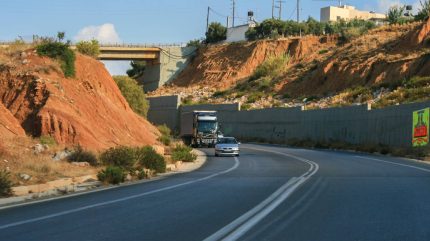
The European Commission (EC) has sanctioned a Greek initiative to aid the construction of two sections of the northern road axis on the island of Crete, known as BOAK.
This project is set to become part of the Trans-European Road Network and is expected to play a significant role in boosting Crete’s economic growth without significantly affecting competition, said the EC.

Discover B2B Marketing That Performs
Combine business intelligence and editorial excellence to reach engaged professionals across 36 leading media platforms.
The funding will be partially sourced from the EC’s Recovery and Resilience Facility (RRF).
Greece had reported its intention to provide financial assistance for the Chania-Hersonissos motorway segment, which spans 106km, and potentially for the 30km Kissamos-Chania section.
This development is part of a broader strategy to enhance BOAK, Crete’s primary transport infrastructure that extends approximately 300km.
Through a tender process, Greek authorities awarded a 35-year concession for the toll motorway to GEK TERNA, which has established a special purpose vehicle (SPV) for executing the project. This SPV is tasked with designing, constructing, financing, operating, and maintaining the aforementioned motorway sections.

US Tariffs are shifting - will you react or anticipate?
Don’t let policy changes catch you off guard. Stay proactive with real-time data and expert analysis.
By GlobalDataThe SPV will obtain from the Greek government a cash grant estimated at €792m ($922.12m) and an additional surplus of around 65% over the tolls charged to users, known as a ‘shadow toll’ surplus.
A portion of this public funding will be provided through the RRF following approval of Greece’s Recovery and Resilience Plan by the EC and its adoption by the European Council.
The EC reviewed the aid measure under Article 107(3)(c) of the Treaty on the Functioning of the European Union, which permits support for specific economic activities or regions under defined conditions.
The commission determined that this aid encourages the concessionaire to proceed with a project poised to stimulate Crete’s economic advancement by fostering investment, job creation, improved traffic conditions, and enhanced road safety.
Moreover, Greece has demonstrated that public funding is necessary and proportional to fill the gap between investment costs and prospective financial returns. This limits the funding to what is essential for completing the project, said the EC.
Consequently, the commission concluded that public funding allocated for constructing the Chania-Hersonissos and Kissamos-Chania sections aligns with EU State aid regulations.





